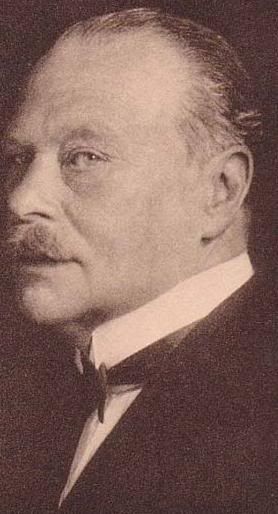Ernst Ludwig, Grand Duke of Hesse
From Kaiserreich

|
Ernst Ludwig von Hesse-Darmstadt (born Ernst Ludwig Karl Albert Wilhelm on November, 25 1868 in Darmstadt, Germany), is the current ruler of the Grand Duchy of Hesse and by Rhine, one of the constituent states of the German Empire, since March, 13 1892, upon succeeding his father Ludwig IV.
Contents |
Biography
Childhood
The fourth child and eldest son of then Hereditary Grand Duke Ludwig (later Grand Duke Ludwig IV) and Princess Alice of the United Kingdom, Ernst Ludwig's early life was shrouded with death. When he was five, his younger brother Friedrich died, after falling through an unlatched window and dying from brain haemorrhage, as he was haemophiliac. Ernst Ludwig was filled with culpability and the desire to revive his brother, and Friedrich's grave became a place of regular pilgrimage for the family, causing Ernst Ludwig to become obsessed with thoughts of death and dying alone.
In 1878, an epidemic of diphtheria swept through Darmstadt. All of the children (except Princess Elisabeth, who was sent to stay with their paternal grandmother) and their father fell ill. Princess Alice cared for her sick husband and children, but on November 16, the youngest of them, Princess May, died. Alice kept the news from her family for several weeks, until Ernst Ludwig, who was devoted to little May, asked for his sister. Ernest Louis was overcome with grief when his mother revealed May's death. In an effort to comfort her grieving son, Alice kissed him, and within a week, fell ill and soon died, on December 14. Her death was a burden that Ernst Ludwig bore for the rest of his life.
Rule
In 1892 Ernest Louis succeeded his father as Grand Duke. Throughout his life, Ernest Louis was a patron of the arts, founding the Darmstadt Mathildenhöhe Artists' Colony, that had a great success abroad, the Darmstadt Porcelain Museum and, along with Baltic German philosopher Hermann von Keyserling, the Society for Free Philosophy. He was himself an author of poems, plays, essays, and piano compositions. He rebuilt the Darmstadt Castle in 1897, Ernest Louis served in the German military during the Weltkrieg, working in medical assistance, and tried to advocate peace, through his relations with his brother-in-law, Czar Nikolai II. He is also known as an outspoken opponent to authoritarianism, National-Populism and Pan-Germanism.
Family
Ernst Ludwig is linked to many Royal and Imperial Families of Europe. His sister Irene married Prince Heinrich of Prussia, who would later become King Genrikh of White Ruthenia. His sister Alexandra was Empress Consort of Russia, spouse of the last Russian Czar Nikolai II.He is also cousin to the King of Finland, Fredrik Kaarle I.
On April 19, 1894 Ernest Louis married his first cousin, Princess Victoria Melita of Saxe-Coburg and Gotha, in Coburg, on the encouragement of their mutual grandmother, Queen Victoria. The marriage was not a happy one. They had two children, a daughter, Elisabeth, born in 1895, who died of typhoid fever at age eight, and a stillborn son, on 25 May 1900. The couple became estranged and the two were divorced December 21, 1901, on the grounds of "invincible mutual antipathy" by a special verdict of the Supreme Court of Hesse. Victoria Melita spreaded rumours about his husband's homosexuality. She remarried in 1905 with Grand Duke Kyrill Vladimirovich of Russia, current Head of the Russian Imperial Family and claimant to the Russian throne.
Ernest Louis remarried, in Darmstadt on 2 February 1905, to Princess Eleonore of Solms-Hohensolms-Lich (born on September, 17 1871), with whom he had two sons:
- Hereditary Grand Duke Georg Donatus of Hesse and by Rhine (born November, 8 1906), who would succeed him as Grand Duke Georg.
- Prince Ludwig Hermann Alexander Chlodwig of Hesse and by Rhine (born November, 20 1908)
